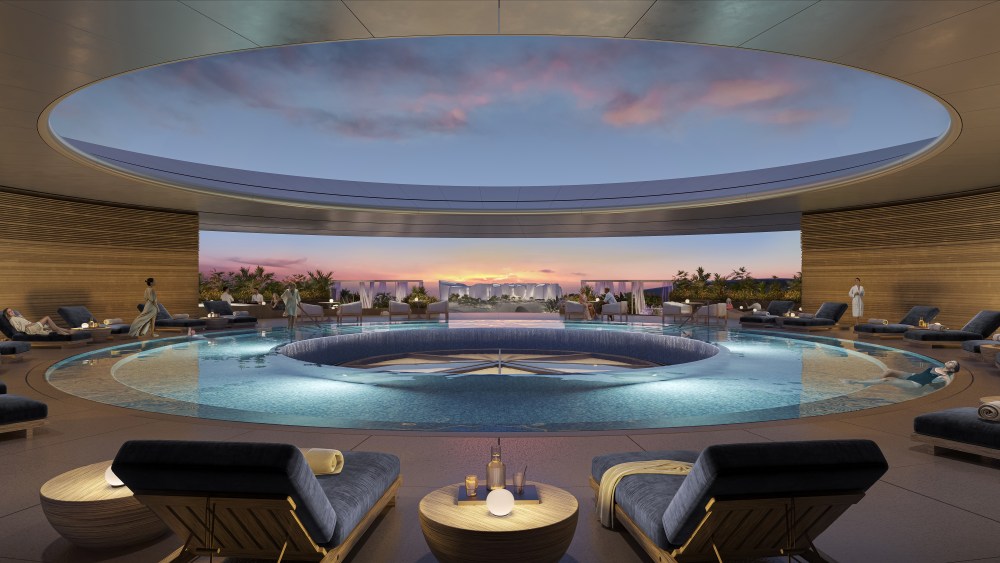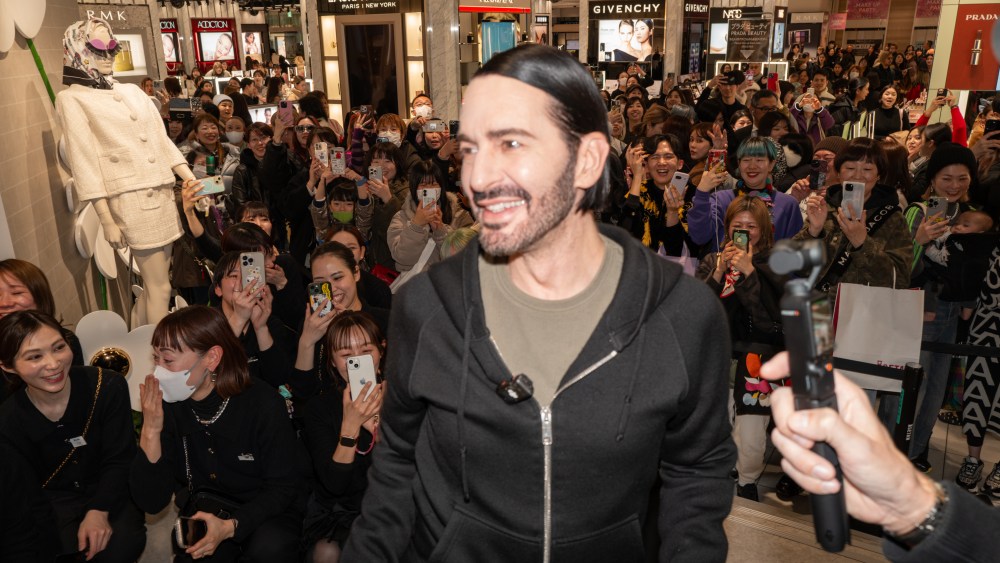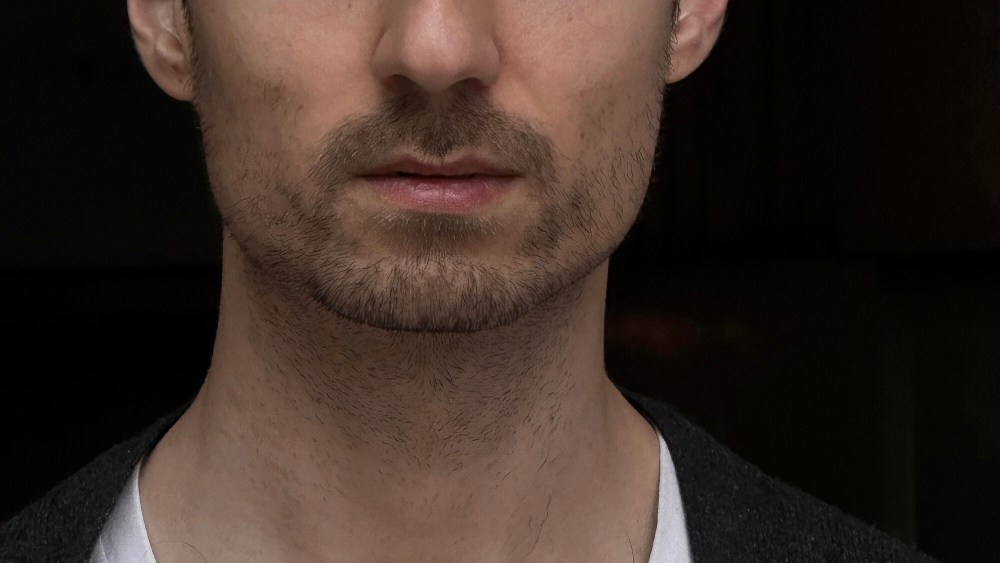MILAN — When Christopher Norton joined Equinox Hotels from the Four Seasons Hotels and Resorts chain almost a decade ago, he stepped into something totally new. Tasked with adapting Equinox’s fitness as a lifestyle approach into Equinox Hotels, the executive forged a new category of luxury rooted in restorative and regenerative hospitality.
With Norton at the helm, Equinox Hotels opened the doors of its first location in New York City’s landmark Hudson Yards development in 2019. The firm also developed its own set of high-service standards, which includes an on-site fitness club, food and beverage, and The Spa by Equinox Hotels. Today the company has its eye on opening six hotels, once again venturing into unknown territory. It will open the brand’s first Saudi Arabia location, the first outside North America, in the new Red Sea development of Amaala in early 2026.
You May Also Like
Here, Norton discusses the firm’s next phase of growth.

WWD: Saudi Arabia’s government has invested more than $800 billion in tourism, making it the world’s fastest-growing tourism market. Equinox Hotels is gearing up to open its first hotel there — its first outside of the US. Can you tell us about taking part in the Kingdom’s Vision 2030 and the Red Sea Project?
Chris Norton: We’re set to debut Equinox Resort Amaala on Saudi Arabia’s Red Sea, about 750 kilometers from Jeddah, a destination being shaped with visionary ambition. Amaala is designed around an iconic marina with about 120 slips for superyachts and brings together some of the world’s foremost luxury and lifestyle brands: Equinox, Four Seasons, Six Senses, Rosewood, Ritz-Carlton and Nammos.
Our property will sit right in the heart of Triple Bay, so while it’s a resort, it’s also very much at the center of it all, steps from the marina, the beach and luxury shops. It’s the energy of the destination. We’re the only adults-only concept within Amaala, which allows us to create a very focused experience around high performance, regeneration and connection. We are creating an atmosphere for guests who seek both to push boundaries and to regenerate, all within an unmistakably sophisticated environment.
WWD: In your own words, why is Amaala so special?
C.N.: Over the past two decades, I’ve witnessed Saudi Arabia’s remarkable transformation, and Amaala is unlike anywhere else I’ve been; it’s untouched land and water. You look out and see coral reefs that have never been dived before, pristine beaches, and this dramatic desert-meets-sea landscape. It’s truly uncharted.
Equally inspiring is Red Sea Global’s commitment to preserving that environment. Every element of development is guided by sustainability, ensuring that Amaala’s natural beauty will endure for generations.
For us, that makes Amaala such an inspiring place to be a part of; it’s this rare balance of raw natural beauty and thoughtful, future-minded development. You feel like you’re discovering something entirely new, but in a way that’s respectful of the natural environment.

WWD: In terms of strategy, why is Equinox Hotels opening its first foreign outpost in Saudi Arabia and not Dubai?
C.N.: We are still looking at Dubai and are assessing several opportunities. We would love to be there. In Abu Dhabi, we have landed on an amazing project and will announce something soon. But Saudi Arabia, and specifically Amaala, Neom and Diriyah, really stood out for us. There’s so much energy and ambition in the country right now, and this drive to create something modern while still honoring deep cultural roots. There’s a hunger for innovation and for bringing in concepts that push the boundaries of what luxury hospitality can be, and that’s exactly where Equinox Hotels belongs.
WWD: Where are you planning to open in the U.S.?
C.N: Our focus in the U.S. remains strong, with a pipeline of projects in cities like L.A., Nashville, Atlanta and Miami. Strategically, we’re balancing urban and resort destinations so that we can deliver the full range of what our brand stands for, whether that’s a high-performance urban resort or a regenerative getaway in nature.
WWD: Vision 2030 is the culmination of Saudi Arabia’s efforts to diversify its economy away from oil and invest in other industries like tourism and fashion. Elsewhere, how is the region changing? Were you surprised?
C.N.: The region has changed. Saudi Arabia has about 34 million people, and the land mass is enormous; it’s the 12th largest country in the world. What’s striking is how young the population is: roughly 70 percent are under 30. It makes it an incredibly dynamic, forward-looking market. This youthfulness, combined with an openness to innovation, propels the country’s rapid evolution. It’s invigorating to participate in that growth and be part of the landscape as it actively reimagines itself.
WWD: Within both design and fashion, the Middle East is one of those buoyant markets providing a glimmer of hope amid a difficult economy worldwide. Is that the same in the hospitality industry?
C.N.: Yes. Since the COVID-19 pandemic, the hospitality industry has been in a phase of phenomenal recovery. Rates in major cities like Milan, Paris and New York are at all-time highs, and guests are increasingly prioritizing experiences over possessions. If they have the means, they want to stay in great hotels, travel meaningfully and invest in memories.
It mirrors the shift we’ve seen in fashion, away from fast consumption and toward longevity, craftsmanship and authenticity. Our New York property continues to perform exceptionally well, and I have no doubt that Amaala will do the same. Hospitality is thriving because it’s evolving, it’s finding new ways to deliver value through experience, emotion and connection.

WWD: As CEO of Equinox Hotels, what’s the biggest challenge right now? What are you most focused on?
C.N.: Our challenge and greatest focus is intelligent, purposeful growth. We’re not interested in expanding for expansion’s sake; we want to be in the right places with the right partners and projects. At the same time, we’re committed to keeping the brand tight as we grow.
Each property should feel distinct. Amaala won’t look like New York, but the essence of Equinox Hotels should be unmistakable. My goal is for guests to recognize that essence the moment they walk in, or even feel it with their eyes closed. That sensory and emotional consistency is what defines a truly strong brand.
WWD: How did you imbue your experience at the Four Seasons Hotels and Resorts with the Equinox ethos when you were getting ready to launch Equinox Hotels as something completely brand new?
C.N.: I’ve always been drawn to creating new but relevant experiences. At Four Seasons, whether in Bali, Indonesia or the Maldives, I wanted to deliver a high-end but truly different experience. For a long time, people thought fitness and spa experiences were interchangeable, but I saw that exercise and movement were becoming a major reason people chose a hotel.
When I met the Equinox team, it was an immediate connection. They wanted to enter hospitality, and I wanted to redefine luxury with something entirely new. It was a chance to create a hotel experience that didn’t exist before, because for the last 10, 20 years, traditional luxury hadn’t really reinvented itself or offered anything radically different. Equinox Hotels gave us the platform to do just that: combine regeneration, high performance and luxury in a way the industry hasn’t seen before.
WWD: A real challenge, a whole new frontier as well.
C.N.: Yes, it was a few sleepless nights, but it was fun.

WWD: Speaking of new frontiers, what place does artificial intelligence have in the hospitality world?
C.N.: AI is already transforming hospitality; it’s enhancing personalization, anticipating guest needs and streamlining service. I use it regularly and encourage my team to do the same. It’s evolving fast, and the potential is incredible.
That said, the key will be balance. AI can handle the transactional elements, knowing a guest’s preferences, anticipating what they want in their room, but the human touch remains irreplaceable. True hospitality lives in those personal moments, in empathy and connection. Technology should amplify that, not replace it.
WWD: What do you think it will resemble?
C.N.: AI in hospitality will make things more convenient and seamless for guests. It can anticipate what someone expects in their room, whether they drink alcohol, want a bottle of Champagne or have other preferences. Those transactional elements can be handled automatically, so human interactions can focus more on personal touches, pleasantries and handling any glitches that come up.
WWD: How long do you think it will take before it appears in hospitality?
C.N.: We’re going to see this shift quite dramatically over the next five to 10 years. It’s coming faster than people realize, and it’s going to change the way hotels and resorts operate at a fundamental level.
WWD: Are partnerships and creating ancillary revenue a priority for Equinox?
C.N.: Partnerships and ancillary revenue are definitely part of what we do, but they are not the core of our business. They can be interesting, and sometimes press-worthy. I’ve seen other hotels invite designers to do a residency, or have luxury brands like Chanel set up a boutique somewhere unexpected, like on a beach in the Maldives. It creates excitement, but it’s not what drives our business.
When we do partner with someone, it has to make sense and serve our purpose. That could be with an incredible craftsman who makes a perfect mattress for a great night’s sleep, for example. We have brand partnerships, but the key is that any collaboration has to align with our values and enhance the guest experience.
WWD: You talk a lot about performance lifestyle. How is this concept evolving?
C.N.: It’s been evolving over generations. My dad considered luxury his old Jaguar two-seater that smelled of leather and oil, a cigar and a brandy, and long, indulgent lunches at great restaurants. That was luxury to him, what I call “brass buttons and white gloves.”
Today, luxury is very different. Travelers expect to prioritize their health and performance; if you take away their workouts, their runs, their treadmill time or personal training sessions, they get frustrated. For modern travelers, luxury is really about being the best version of yourself, and creating an environment that supports that is now at the heart of what we do.



